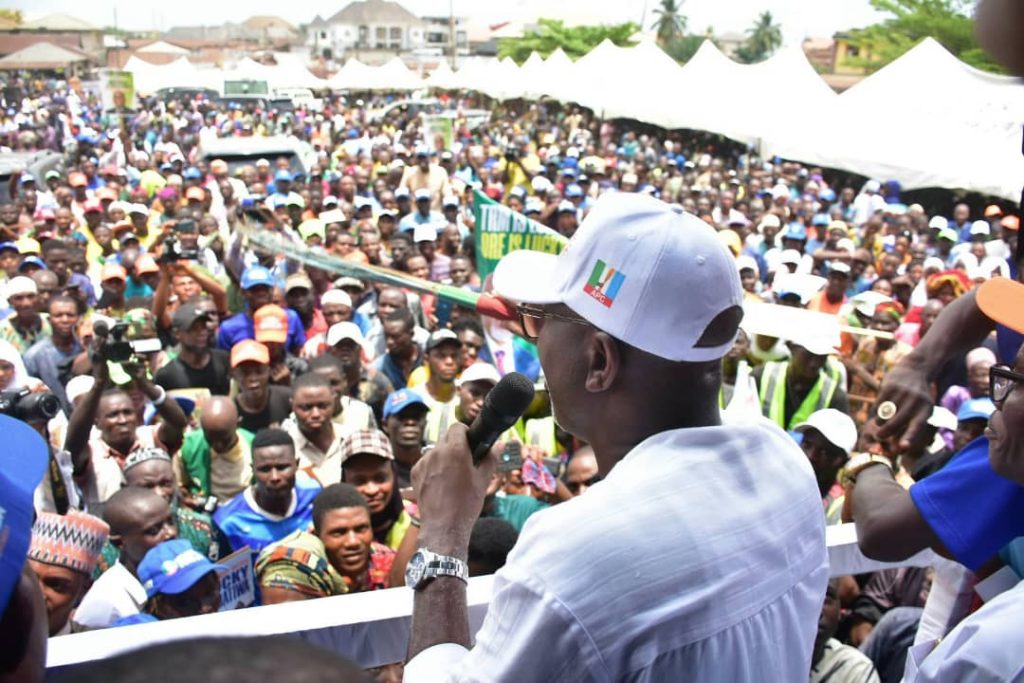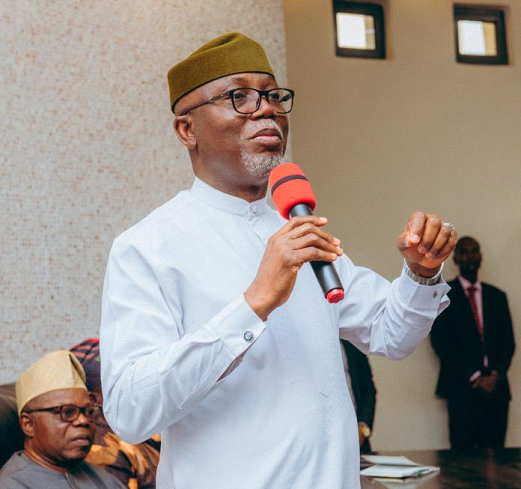FG’s Proposed Nationwide CCTV
RECENTLY, the Federal Government, through the Minister of State for Police Affairs, Muhammad Dingyadi, announced its readiness to install Close Circuit Television (CCTV) cameras on all the major highways across the country. The objective of the project is to check the high rate of insecurity bedeviling the country across regions, especially as banditry, kidnapping and terrorism have become the new norms in the country.
THE HOPE believes that the idea of installing security cameras across the country is laudable, given the fact that most of the threats to the security of our country can be traced to the privilege of committing a crime and getting away without being traced. The existence of closed circuit cameras everywhere will drastically reduce criminality, as criminals will know that they are being watched.
IN advanced countries, the United States as an example, certain crimes have been addressed in the past, just because the perpetrators were tracked by security cameras. Unfortunately, this has not been possible in Nigeria because we still depend on the stop-and-search method by our law enforcement agents, a method that has been found to be outdated across the world.
IN addition, CCTV is no respecter of persons. Being a device and not a human being with sentiment, the cameras will expose anybody who violates the law, irrespective of the person’s political, economic, ethnic, geographical or religious background.
AS much as this initiative sounds soothing to Nigerians, it also raises concern of a possible white elephant project, if not another financial shenanigan by those in power.
RECALL, the Umaru Musa Yar’Adua’s administration initiated a national $470million CCTV project, funded through a 600 million dollar loan from Chinese EXIMBANK and contracted it to a Chinese company, ZTE Corporation, with May 2011 as the completion period. The company was to install 2000 CCTV cameras that would provide audio, video and data information for use by the Nigeria Police Force and other security agencies in Lagos and Abuja
UNFORTUNATELY, the project was not completed, the money paid was not recovered and at the height of it, nobody was held accountable for the fiasco. The National Assembly in 2012 and 2015 investigated the “project lying in ruins” and their reports indicted many top government officials responsible for the failure of the project but the reports, as a usual practice in the political sphere, were just paper works without any action. It is embarrassing that in this 21st century, even the FCT is yet to be covered by this modern-day security apparatus.
NOW, President Muhammad Buhari has given approval to resuscitate the project, with expansion in scope to cover all major highways across the 774 local government areas in the country. This raises our fear that if installing just 2000 cameras in Lagos and Abuja could fail, what will happen to installing the cameras across the country?
ANOTHER cause for concern is the non-disclosure of the fund earmarked for the resuscitation of the ruined project. The only thing the Minister of State for Police said was “We are moving forward”, a political statement shrouded in enigma. We fear this may be another attempt to waste public funds.
FURTHERMORE, CCTV cameras require power – electrical or solar. Currently, the country only generates 3,500 – 5000 MW; dependent on hydropower (12.5%) and fossil (gas) thermal (87.5%) power sources, with many communities in total darkness. There must be a well-thought-out plan to power the cameras as well as their data bases across the states, except we are living in a fool’s paradise. Addressing these concerns will be a step towards ensuring the project succeeds.
THE federal government must buckle up and take the bull by the horn to ensure that this time around the project is successful. We advise that the project should be carried out and supervised by not only competent people but those with integrity, to whom national interest and the security of the nation are paramount.
SIMILARLY, we suggest that the project should be private-sector driven for effectiveness. In the history of the country, similar projects handled by government either failed or are below standards. The Olusegun Obasanjo and Umaru Yar’adua administrations’ attempts to provide bore-hole water and public health centres respectively across the country failed.
IN addition, the “Bill for an Act to Make Provision for the Integration of Private Closed Circuit Television Infrastructure into the National security Network in Nigeria” should be passed into law. The bill seeks to compel compulsory installation of CCTV cameras on private buildings and offices and it has passed the second reading. The installation of cameras on corporate buildings across Nigeria will make provision for “security eyes” everywhere, giving little room for criminals to walk freely.
AS much as we support the initiative, our doubts regarding success of the FG unscrutinised and enigmatic plan remain strong.










